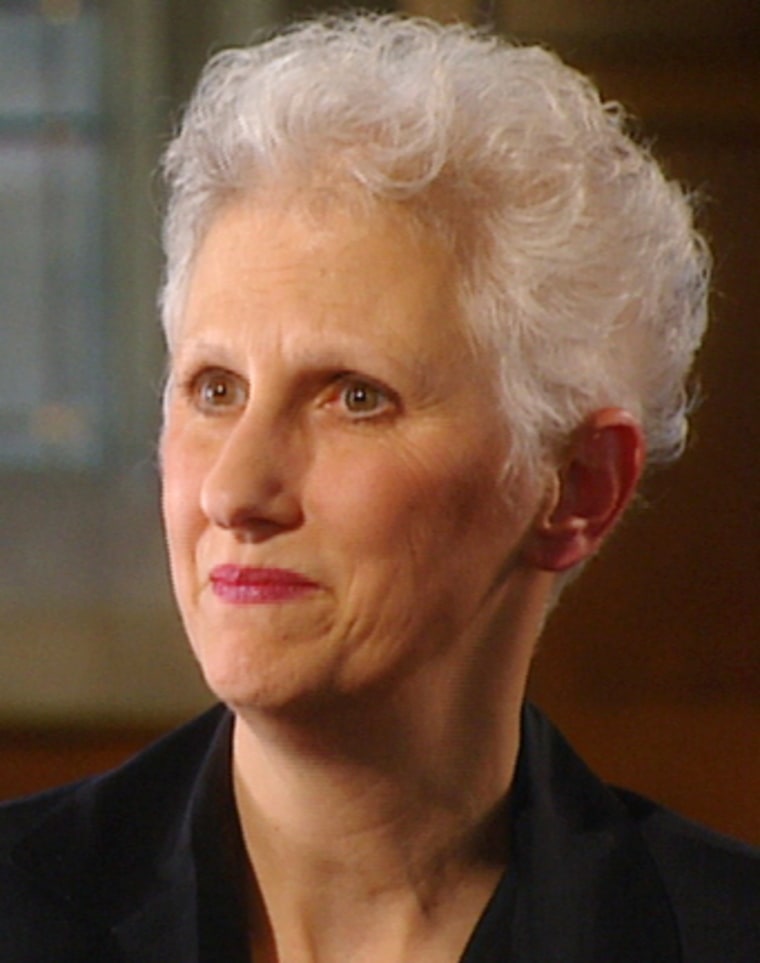• August 4, 2006 |
For a survivor, a chance to confront the offender (Susan Adams, Dateline producer)
Every so often I produce a story where I feel fortunate to be a journalist able to offer a concept that I know can truly help people. This story of Restorative Justice is one of them. Imagine what it must be like to be a survivor of a violent crime. You could be the survivor or you could be, like Terry Anderson in our story, you could be someone who lost her brother to a violent crime. Along with the initial rage and grief come unanswered questions, which more times than not, are never answered in court. Why did this happen, whose idea was it, what were his last words, did he suffer, do you know how much pain you have caused our family and how does anyone get to the point where they can take a human life? The questions can go on and on and often, the only one with the answers is the murderer himself.

This is where Restorative Justice comes into play. Terry Anderson had been as active as a survivor could be. In 1985, when her brother's killers were sentenced to life in prison, at the time in Wisconsin, life meant 13 years. She became deeply involved in changing the law to give judge's discretion to add any number of years beyond 13 to a life sentence. She was also the first person in the state of Wisconsin to speak at a parole hearing. In 2003, Eric Nelson's 2nd parole hearing, a woman from Wisconsin Victims' Services was in attendance to support Terry. After hearing Terry speak so passionately about the loss of her brother, she suggested to Terry that perhaps she would be interested in Restorative Justice and an opportunity to question Eric Nelson directly. It was an idea Terry had to think about. A year later, Terry heard Professor Janine Geske of Marquette University Law School speak about her Restorative Justice program and she approached Janine about it. So it began.
An offender does not have to agree to a mediation, but as it turned out for years Eric Nelson had been praying for the opportunity to express his remorse to Terry and her family. As our story indicated only an offender who is willing to fully admit to his crime is allowed to participate in a mediation. And Eric was more than ready.
So an opportunity for both Terry and Eric to heal was upon them. Eric told us he barely slept the night before the mediation. Conversely Terry slept soundly, waking fully rested and ready to go. Those involved in victim/offender meetings tell us that typically they are extremely cathartic. It can be very moving to witness offenders express their shame and sorrow over the choice they made. It can be equally moving to hear survivors or victims describe their unbearable pain and grief and the ways in which the crime affected so many people. Both sides are almost always moved to tears when faced with this kind of raw honesty. Sometimes they even embrace at the end. But the real question they face is, given what they learn in the mediation, can they move on, can they transcend whatever it is that has caused the crime to remain so powerful for so long?
That is the beauty of Restorative Justice. Most often, we are told, both sides walk away with a peace that they have sought for many years.
On Dateline Friday, you will have a chance to witness an extraordinary meeting between Terry Anderson, sister of murder victim Joseph Vite and Eric Nelson, who 21 years ago fired the fatal shot that killed Terry's brother. See for yourself how it unfolds.
We were not expecting Terry to embrace Eric at the end. She had been very clear that she would never ever forgive him. But what did happen over their four hour conversation surprised us. No tears were shed. Though Eric expressed his sorrow in every way possible, Terry gave him little room to be at ease with himself. It was how she chose to handle the mediation. She had planned to turn her back on him when it was over and that's exactly what she did.
I was quite concerned that this mediation did not reflect well on Restorative Justice and that it was not a good example of all that it can be. I had several conversations with Janine Geske about it. She does such extraordinary work I wanted to make sure she was comfortable with this outcome. She reminded me that every mediation is unique and that just because it did not turn out the way we thought it should does not mean it didn't work for Terry. She also told me that Eric Nelson was extremely grateful for the opportunity and was glad Terry had a chance to say anything she wanted to say to him.
Terry tells us she accomplished what she set out to do. And she will continue to appear at parole hearings to keep Eric exactly where he is. And while there may not have been an obvious breakthrough I will leave Janine Geske with the last word. " I guess I'm sort of an optimist on this. I'm going to tell you there was no obvious breakthrough. There's nothing that we could see on the outside. Who knows what's going on on the inside with Terry— I think things were moving. People heal at different levels, at different paces. And so, it's hard to know where she'll be in a year."